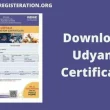Online communities have become an essential tool for social movements in recent years, providing a platform for like-minded individuals to connect, organize, and mobilize around a shared cause. The power of these communities lies in their ability to bring people together from different parts of the world, providing a space where ideas can be shared and amplified, and actions can be coordinated.
But the role of online communities in social movements is not a new phenomenon. In fact, the use of networks and groups to facilitate social change dates back to the earliest days of human civilization. From the civil rights movement in the United States to the Arab Spring uprisings in the Middle East, the power of online communities has been demonstrated time and time again.
The civil rights movement of the 1950s and 1960s was one of the most significant social movements in American history, with the goal of achieving equal rights and ending racial discrimination. The movement was largely driven by grassroots organizing, with leaders like Martin Luther King Jr. and Rosa Parks using their platforms to inspire and mobilize people across the country.
While social media didn’t exist at the time, the movement was successful in building strong networks and communities, using methods like church meetings, town hall gatherings, and marches to connect with people and spread their message. The sense of community and shared purpose was essential to the success of the movement, as it allowed people to come together around a common goal and feel empowered to take action.
Similarly, the Arab Spring uprisings in the Middle East in 2010 and 2011 were largely facilitated by social media and online communities. Protests erupted in Tunisia, Egypt, Libya, and other countries, as people mobilized against authoritarian governments and demanded greater freedoms and democracy.
Social media platforms like Facebook, Twitter, and YouTube played a significant role in these uprisings, allowing people to share information and coordinate actions in real-time. Online communities were formed around specific issues, like human rights, political reform, and social justice, and these communities were able to connect with each other to build a larger movement.
While the Arab Spring ultimately did not lead to lasting political change in many of these countries, it demonstrated the power of online communities to mobilize people and effect social change on a large scale.
In recent years, online communities have played a significant role in movements like #MeToo and Black Lives Matter. These movements have used social media platforms to connect with people around the world, share personal stories, and raise awareness of issues related to gender and racial equality.
The #MeToo movement, in particular, was successful in bringing to light the prevalence of sexual harassment and assault, and the power dynamic that often enables this behavior. Online communities were instrumental in providing a space for survivors to share their stories, find support, and demand accountability from those in positions of power.
But as powerful as online communities can be in facilitating social movements, they also come with their own set of challenges. For one, they can be vulnerable to infiltration and disruption by malicious actors, who seek to sow discord and undermine the movement. This was evident in the 2016 U.S. presidential election, where foreign agents used social media to spread disinformation and sow division among voters.
Online communities can also be prone to “echo chambers,” where people only interact with those who share their beliefs and values, leading to a lack of diversity and the potential for groupthink. This can be especially problematic for social movements, which need a diverse range of voices and perspectives to be successful.
Despite these challenges, online communities are likely to continue playing a significant role in social movements in the future. As technology evolves and social media platforms become more sophisticated, these communities will become even more powerful tools for mobilizing people and effecting change.












